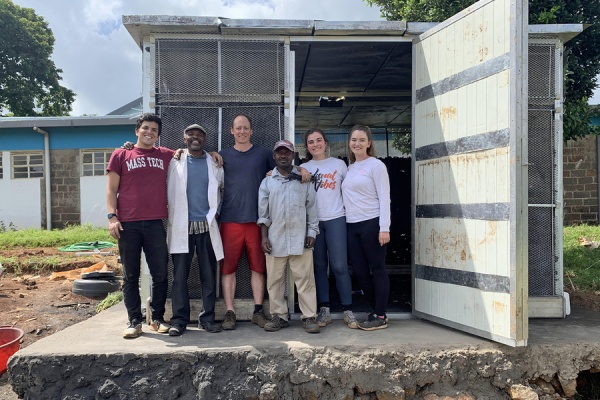Our Research Evaporative cooling technologies for fruit and vegetable preservation in Kenya
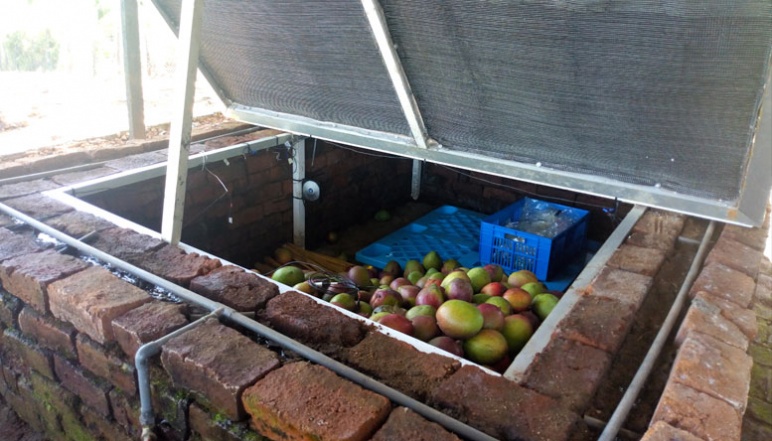
A brick evaporative cooling chamber being used at a farming cooperative in Karurumo, Kenya. Photo credit: Frey, Glicksman, Verploegen research team
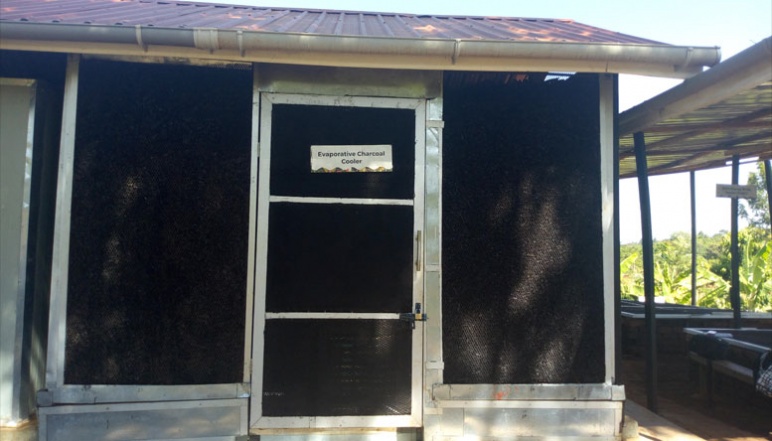
A charcoal evaporative cooling chamber being used at a farming cooperative in Karurumo, Kenya. Photo credit: Frey, Glicksman, Verploegen research team
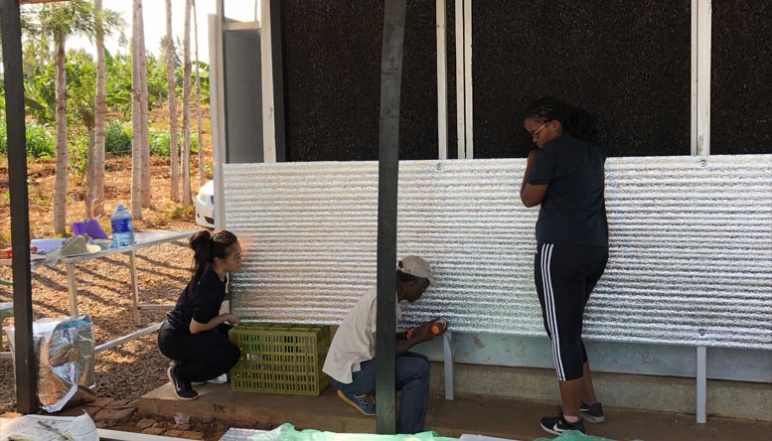
MIT students Carene Umubyeyi and Trang Luu working with University of Nairobi researcher Mwachoni El-Yahkim to retrofit a charcoal ECC at a farming cooperative in Masii, Kenya with reflective insulation panels. Photo credit: Frey, Glicksman, Verploegen research team
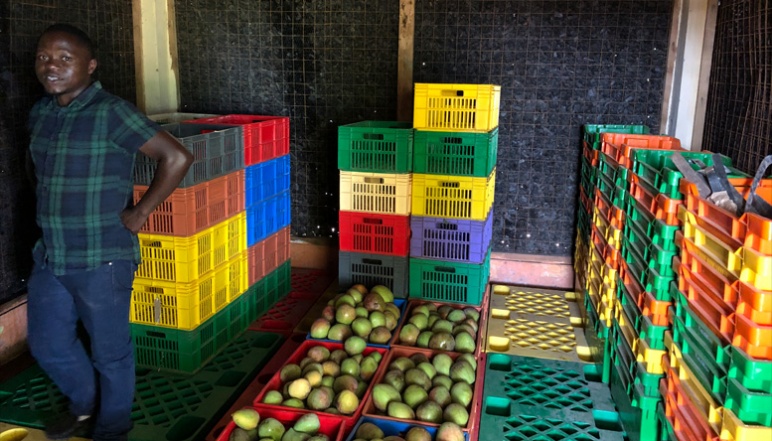
University of Nairobi researcher Emmanuel Amwoka inside a charcoal ECC for storing mangoes at a farming cooperative in Masii, Kenya. Photo credit: Frey, Glicksman, Verploegen research team
Principal Investigators
Daniel Frey
- Professor of Mechanical Engineering
- Faculty Director for Research, MIT D-Lab
- Department of Mechanical Engineering
Leon Glicksman
- Professor of Building Technology and Mechanical Engineering
- Department of Architecture
Eric Verploegen
- Founder of CoolVeg
- Former Research Engineer at MIT D-Lab
Challenge:
Storing vegetables after harvest without cooling them can lead to spoilage and reduced income for farmers. Most techniques for cooling and storing vegetables rely on electricity, which may be unaffordable or not available for many smallholder farmers, especially those living in remote areas on less than $3 a day.
Research Strategy
- Use computational models to design improved room-sized Evaporative Cooling Chambers (ECCs) for farming cooperatives
- Construct innovative ECCs for demonstrations on the University of Nairobi campus and at farmer cooperatives in rural Kenya
- Use data logging sensors to measure the ambient temperature and humidity, interior temperature and humidity of the evaporative cooling chamber, and the moisture of the water retaining materials
- Interview users to identify factors leading to adoption of the technologies
Project description
Evaporative Cooling Chambers (ECCs) can improve vegetable storage shelf life by providing a stable storage environment with low temperature and high humidity, which reduces the rate of respiration, water loss, and spoilage in most vegetables. The improved storage environment can have positive impacts including reduced post-harvest losses, less time spent traveling to the market, monetary savings, and increased availability of vegetables for consumption. ECCs are particularly suited for hot, dry regions and countries with some access to water and limited or unaffordable access to electricity, such as rural Kenya.
The research is being conducted in partnership with researchers from the University of Nairobi’s Department of Plant Science and Crop Protection, who have extensive experience working with low-income rural communities on issues related to horticulture and improving livelihoods.
The collaborative team from MIT and University of Nairobi is building and testing innovative designs for room-sized evaporative cooling chambers in rural Kenya for farming cooperatives whose primary product is mangoes. The computational heat and mass transfer models developed for clay pot cooler evaporative cooling devices will be used to predict the behavior of larger scale evaporative cooling chambers. The goal of this project is to optimize the design for performance, practical construction, and user preferences to meet the needs of smallholder farmers in low-income, rural communities in Kenya and better understand user behavior and pathways to adoption.
Outcomes
- Gathered information on user needs and preferences through interviews and focus group discussions with members of farmer cooperatives in rural Kenya
- Developed heat and mass transfer models for several aspects of cooling chambers
- Designed a novel cooling chamber based on a used shipping container that promises to improve thermal performance while minimizing water and energy use, and constructed a full-scale prototype of the novel cooling chamber design at MIT. The design has been shared with partners in Kenya and India, who have begun construction of chambers
- Conducted initial cost and business model analysis for current and novel chamber designs that indicates that the cost of vegetable storage can be reduced by 50%, reducing storage fees for farmers and increasing profits for local operators of the storage chambers
News
Additional Details
Impact Areas
- Food
Research Themes
- Sensors & Monitoring
- Technology & Commercialization
- Transforming Food Systems
- Modeling & Data Analytics
- Equity & Access
Year Funded
- 2019
Grant Type
- Seed Grant
Status
- Completed



